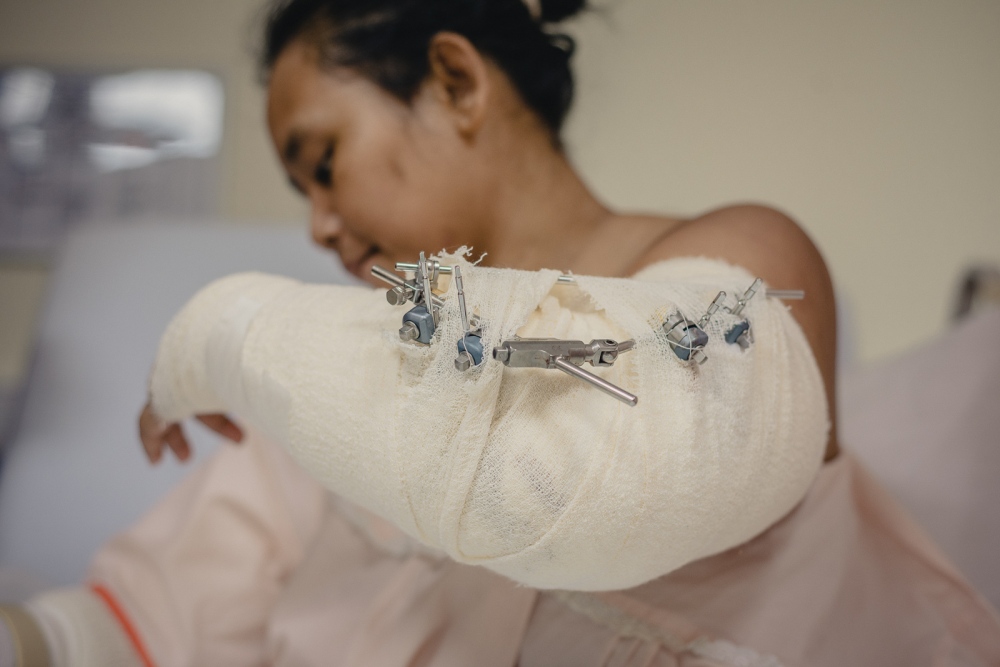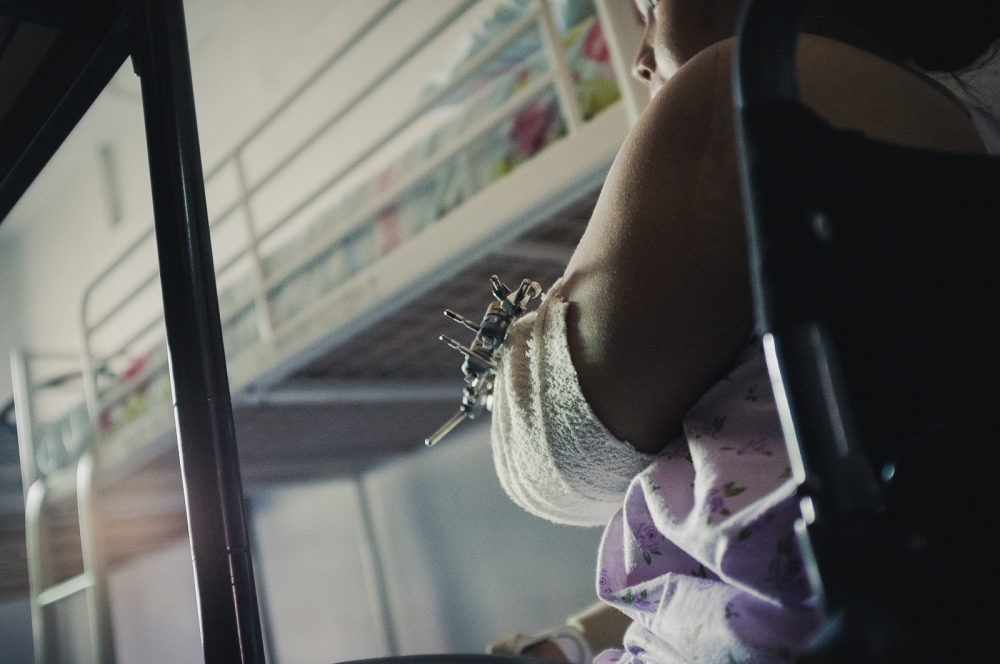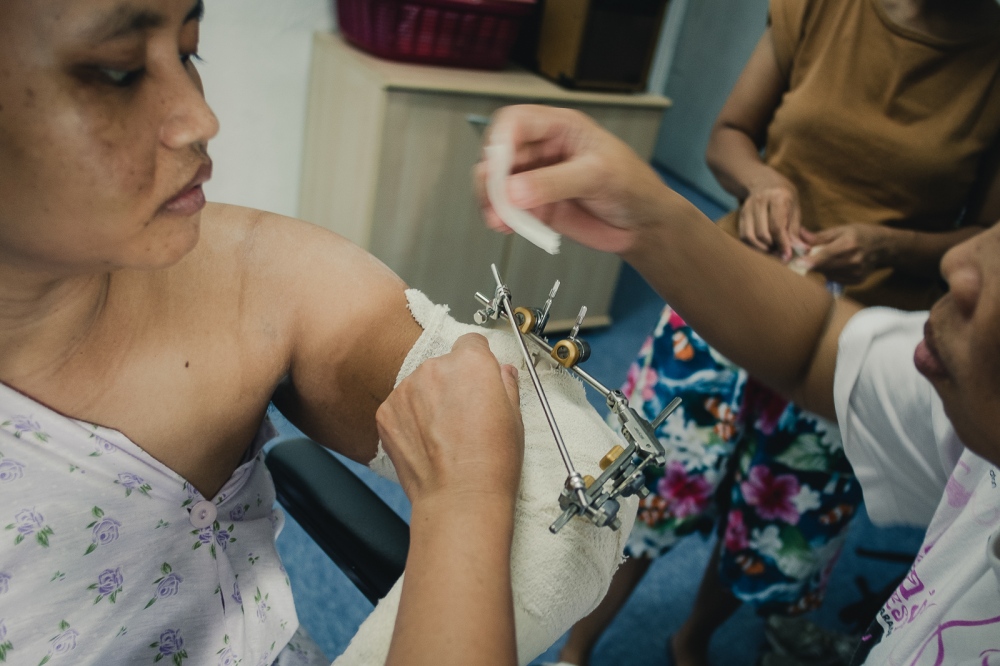Migrant domestic workers as not just a Labour Commodity but people with their own lives and struggles. Again and again I hear from domestic workers that they just want to do their job, earn some money and be treated with dignity and respect. This is something we can all relate to. There should be no second class citizens of the world.
The following text is authored by journalist Kirsten Han.
The first thing one notices about Nina is how often she laughs. The giggles bubble out of her, as if she’s fizzing over from the inside. It makes her look more like a teenage girl, rather than a mother-of-two. But one quickly learns not to mistake her laughter for joy; it can just as quickly dissolve into tears.
That was how it was when we first met her, sitting in bed in a crowded ward in a major Singaporean hospital, her arms in casts.
A long way from home in Indonesia, Nina’s short time in Singapore was nothing like she had expected. Yet her story sheds light on many of the challenges that migrant domestic workers face in travelling to the Southeast Asian city-stateNina Duwi Koriah comes from a family of rice farmers in East Java, Indonesia. She left her two children in March 2016 to work as a domestic worker in Singapore where she was responsible for cleaning, cooking and looking after a family with three children and their grandmother, and she was not given a day off.
Unhappy with the treatment from her employer after one week she sought help from her agent, who refused to transfer her to a new employer. One week later the agent agreed to take Nina in and brought her out of the employer’s house.Nina reports the agent was displeased that she did not finish her contract and shouted at her. After three days of being locked in the agent’s home, Nina opened a window with the intention to call for help or try and escape. She says she cannot remember what happened next but she woke up in the hospital.
She had fallen from the third floor and broken her left elbow, right arm and wrist and right leg.She spent time under the care of local NGO, The Humanitarian Organisation for Migration Economics (HOME) which provides direct assistance to men and women migrants and victims of human trafficking and forced labour.
Now back in Indonesia, she is staying with her family until she is well enough to work. She still needed hospital treatment in the latter half of 2016, with each visit costing around 700,000 Rupiah (around US$53) which the family cannot always afford to pay, meaning missed appointments.
Nina intends to stay near home, and look for work in the town of Ngawi, possibly as a sales assistant. But somewhere out there in Indonesia another young mother prepares for her journey out, filled with hope and trepidation of what lies ahead.
























